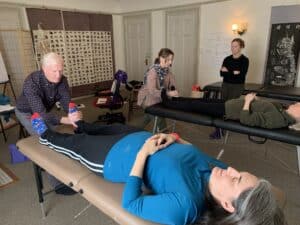Trigeminal neuralgia (TN) refers to a chronic and often painful condition involving the trigeminal nerve. There are two trigeminal nerves, one on each side of the face. Each nerve contains three branches affecting the forehead, midfacial area, and chin. Those with TN may experience pain in one, some, or all of these facial areas. Western medicine approaches TN treatment from a pharmaceutical standpoint, and Western practitioners may recommend surgery to alleviate painful symptoms. However, those looking for a more holistic alternative to medication and surgery may find relief from acupuncture treatment sessions.
Causes and Prognosis of Trigeminal Neuralgia
According to the National Institute of Neurological Disorders and Stroke (NINDS), approximately 12 people out of every 100,0000 receive a TN diagnosis each year. This condition affects more women than men, and while it primarily affects individuals over the age of 50, it may develop at any age. In most cases, the root of TN remains unknown, although identified causes include swollen blood vessels or tumors that apply pressure on the nerve and multiple sclerosis, which damages the protective coating around nerves. The main symptom of TN is the development of sharp spasms that may resemble electrical shocks. These spasms often occur on one side of the face and can be triggered by sound, touch, or everyday actions, such as applying makeup, eating, drinking, speaking, brushing your teeth, or touching your face. Unfortunately, there is no cure for this condition—merely strategies to mitigate and manage the symptoms.
Westernized Medicine’s Approach to Treating Trigeminal Neuralgia
Practitioners of Western medicine may prescribe medication to manage TN symptoms. Medications such as anti-seizure drugs may block nerves from firing, reducing the frequency and severity of the painful spasms. Additionally, muscle relaxants and tricyclic antidepressants may be prescribed to manage pain and reduce anxiety and depression in TN patients. However, many of these medications come with unwanted side effects, such as fatigue, nausea, and dizziness. Sometimes, a doctor may suggest surgery, especially when severe symptoms cannot be managed by medication. Glycerol injections, gamma-knife radiosurgery, microvascular decompression, and other procedures may relieve symptoms in many patients, but they carry considerable risks.
Acupuncture as an Effective Therapy for Trigeminal Neuralgia
The benefits of acupuncture therapy sessions in reducing painful TN symptoms are gradually being explored in a clinical setting. So far, acupuncture shows promise in reducing myofascial pain and mandibular limitations in TN patients. According to one case study, a 66-year-old woman reported she was “pain-free” after 14 sessions, and she was still without pain after six months. A clinical pilot study exploring acupuncture’s effectiveness in treating headaches and TN concluded that acupuncture “was associated with a reduction of pain in headache, migraine, TN, and RAP in facial palsy,” and subjects reported the most significant reduction in painful symptoms after ten treatments. Additionally, a 2020 study found that “acupuncture is associated with a reduction in the risk of depression during long-term follow-up patients with TN.” These promising findings highlight the pain-reducing benefits TN patients may experience through acupuncture therapy.
Schedule an appointment with a Portland acupuncturist by calling Inner Works Acupuncture today at (503) 227-2127.



